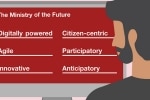Executive summary
For quality learning to take place at the primary and secondary school levels, countries need to have robust protection frameworks for children. Children, society’s most vulnerable members, need to be educated, nurtured, and protected. This is a basic social requirement with long-term socioeconomic benefits. A failure to properly protect children from all forms of abuse can impose severe mental and physical damage on the children concerned and creates social and economic costs. However, by investing in the protection of children, countries preserve and enhance their human capital, which can over the long term improve economic productivity.
The Gulf Cooperation Council (GCC)1 countries are stressing the importance of child protection and education authorities’ role in ensuring it because children spend so much time in educational settings. They are becoming more proactive and are launching child protection initiatives. In some places, however, the approach can be piecemeal as it lacks an institutionalized child protection framework.
To ensure the systematic prevention, detection, and management of child abuse, governments must establish comprehensive frameworks for child protection at a national level. Child protection requires proper reporting and intervention procedures grouped into seven pillars: a solid governance model; unified standards for the definition and identification of maltreatment; mandated — but safe — reporting; confidentiality in information management; safe recruitment of school staff; the introduction of child protection notions into the curriculum; the designation of Child Protection Liaison Officers (CPLO) at schools. These pillars are embedded within a comprehensive legislative and policy framework.
The child protection imperative
Child maltreatment is a worldwide problem. In this report, it refers to any form of physical abuse, emotional abuse, sexual abuse, neglect, or exploitation of a person below the age of 18.
Maltreatment can have a devastating effect on the physical and mental development of children, lasting beyond childhood and adolescence into adulthood. Children who have been maltreated are more likely to face social difficulties, to suffer from behavioral problems, and to display high-risk conduct. These are problems that all GCC governments seek to guard against on basic moral grounds — because it is the right thing to do to protect the most vulnerable members of society. However, there are additional reasons to combat child maltreatment, including the impact on human capital and future workforces. These concerns should prompt government officials to strengthen their protective policies and institutions. In many of these efforts, countries’ school systems can make an important contribution and be a first line of defense for children.
Conclusion
The GCC countries have taken important steps toward protecting children in recent years. As these countries invest more in education, they also need to put more time into solidifying their emerging child protection practices and framework. To provide more reliable coverage and reporting, GCC governments need to institutionalize their child protection frameworks so that all work by education and social affairs agencies is conducted systematically, with cases managed professionally, and whistle-blowers protected. This will allow them to have a more accurate grasp of the extent of child abuse and be better able to treat instances when they occur.
1 The GCC countries are Bahrain, Kuwait, Oman, Qatar, Saudi Arabia, and the United Arab Emirates.


















Menu